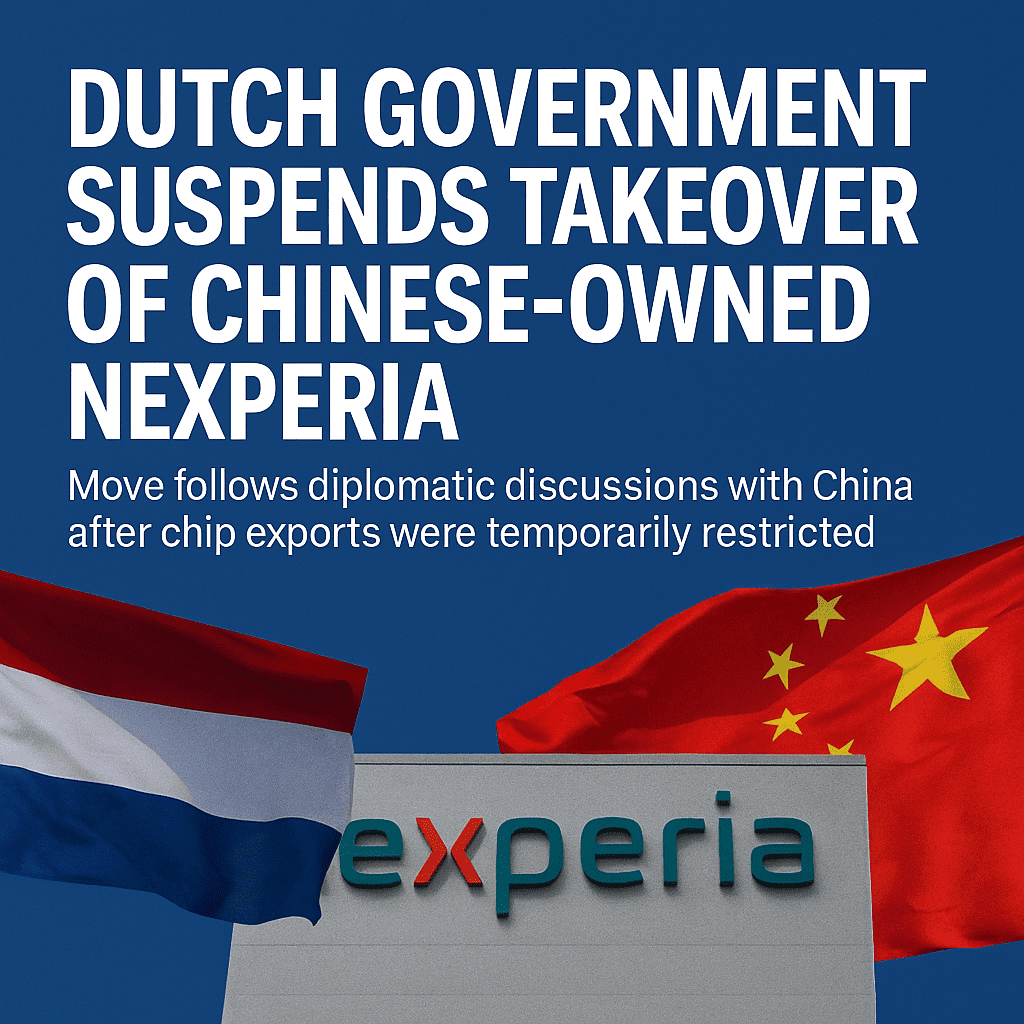The Dutch government’s decision to suspend the takeover of Chinese-owned Nexperia marks one of Europe’s most strategically sensitive moves in the semiconductor sector this year. The Hague has paused enforcement of its earlier order to assume control of Nexperia, a major chip manufacturer owned by China’s Wingtech, following renewed diplomatic engagement and provisional restoration of export flows to Europe’s automotive industry.
When analyzing why the Dutch government suspended the takeover of Chinese-owned Nexperia, several structural issues stand out. The Dutch intervention was initially triggered under the rarely used Goods Availability Act — a law that allows the state to take charge of companies deemed essential for national economic security. Nexperia’s chips feed directly into Europe’s automotive, robotics, industrial automation, and power-management systems. Any disruption exposes Europe to acute supply risks, particularly for electric-vehicle (EV) and smart-mobility manufacturers.
Despite the pause, authorities clarified that this is not a reversal. The takeover mechanism remains active, and the state can reimpose measures if China again restricts chip exports. This nuance explains why the Dutch government’s suspension of the takeover of Chinese-owned Nexperia should be viewed not as de-escalation, but as a tactical pause intended to stabilise supply chains while diplomatic talks continue.
Export volatility began when China temporarily blocked shipments of Nexperia chips — a move that threatened European car production lines within days. Automakers and suppliers warned that prolonged disruption would halt EV assembly, brake-system production, and the manufacturing of battery-safety modules. This pressure contributed to the Government’s decision to suspend the takeover order.
Several strategic pathways emerge from the Dutch government’s suspension of the takeover of the Chinese-owned Nexperia scenario:
• Dual-source diversification: EU manufacturers will likely accelerate sourcing agreements with European fabs and non-Chinese Asian component suppliers.
• Supply-chain transparency: Blockchain-verified semiconductor tracing could minimise risk exposure and allow real-time tracking of export restrictions.
• European chip alliances: (Speculative) The EU may expand the European Chips Act to include targeted acquisition funds that ensure sensitive firms remain within secure ownership structures.
• Operational decentralisation: Automotive suppliers might redesign product architecture to rely on more modular, multi-vendor chipsets to avoid single-point dependencies.
Because the Dutch government has suspended the takeover of Chinese-owned Nexperia, Europe now stands at the intersection of economic security, geopolitical tension, and industrial sovereignty — a landscape that will define semiconductor policy for years.









